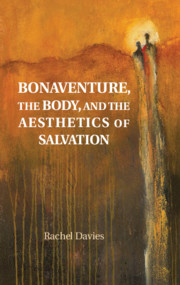'Rachel Davies's highly original reading of Bonaventure's understanding of the suffering human body and its meanings not only questions established presumptions about Bonaventure's 'Platonism', but also provides a fresh fulcrum for contemporary theological assessments of bodily suffering and its transformations. The result is not merely a fine monograph in historical theology, but a study of great suggestive importance for contemporary systematic thinking. Davies writes with exegetical acuity, spiritual sensitivity, and theological insight.'
Sarah Coakley - Norris-Hulse Professor of Divinity Emerita, University of Cambridge
'With vision that is at once scholarly and deeply compassionate, Rachel Davies helps us to see the body and salvation afresh through the eyes of Saint Bonaventure. If we have been tempted to see in Bonaventure an 'Augustinian pessimism' and a 'dualistic Platonism', Davies illuminates a Bonaventurean paschal theology of embodied beauty. Here the body is not an obstacle but, in its very fragility and 'diminishment', a vessel of holiness. In Davies’ elegant treatment, we discover in Bonaventure a bodying forth of the Christian paradox, 'When I am weak, then I am strong.' (2 Cor 12:10) Take and read!'
Kevin L. Hughes - Villanova University, Pennsylvania
‘… Davies offers a rich and illuminative journey through Bonaventure, gleaning from his many riches resources to advance a constructive vision of human bodily being for our time. This book remains an admirable and enjoyable exercise in thinking along with Bonaventure towards an expansive constructive goal. It is a commendable work of constructive theology.’
Junius Johnson - Modern Theology
‘Davies has offered a lucid study of Bonaventure’s theology, one that is noteworthy for the elegance of its argumentation and attentiveness to the mutual intersection of a theology of the body with aesthetic concerns ... readers of Franciscan theology from a variety of disciplines and vantage points will find [this] study erudite, engaging, and provocative.’
Peter Casarella
Source: Theological Studies



